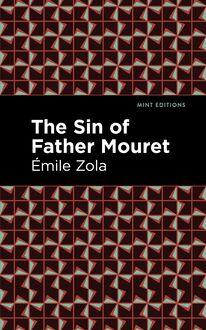-
 Univers
Univers
-
 Ebooks
Ebooks
-
 Livres audio
Livres audio
-
 Presse
Presse
-
 Podcasts
Podcasts
-
 BD
BD
-
 Documents
Documents
-
- Cours
- Révisions
- Ressources pédagogiques
- Sciences de l’éducation
- Manuels scolaires
- Langues
- Travaux de classe
- Annales de BEP
- Etudes supérieures
- Maternelle et primaire
- Fiches de lecture
- Orientation scolaire
- Méthodologie
- Corrigés de devoir
- Annales d’examens et concours
- Annales du bac
- Annales du brevet
- Rapports de stage
La lecture à portée de main
Vous pourrez modifier la taille du texte de cet ouvrage
Découvre YouScribe en t'inscrivant gratuitement
Je m'inscrisDécouvre YouScribe en t'inscrivant gratuitement
Je m'inscrisEn savoir plus
Vous pourrez modifier la taille du texte de cet ouvrage
En savoir plus

Description
Lady Joan grew up in a modest household in a poor community. When she and her childhood friend, Elliot, fell in love as they grew older, Joan promised to wait for him, planning on marrying when Elliot rose to a higher position in society. However, as the wait grew longer, Joan became impatient. When the son of a wealthy coal owner began to express interest in her, Joan hardly hesitated to marry rich and leave her hometown. Now, years later, Lady Joan is reminded of her choice when her old lover, Elliot, who is now a pastor, gets stationed at the church close to Joan’s estate. While Joan reconsiders her past choice of money over love, she is also concerned with the future when she learns that her son, Herrick, has fallen in love with a girl named Lois, threatening the marriage arrangement Joan and her husband were planning for him. Torn between the past and future, Joan must make peace with the decision she made as a young woman while attempting to control her son’s love life. Separated into three volumes, Catherine Louisa Pirkis’ Red Sister: A Story of Three Days and Three Months follows the drama of two generations facing similar issues of love and life. Set in England during the late 19th century, Red Sister: A Story of Three Days and Three Months provides a beautiful and descriptive portrayal of both the aristocratic and middle classes of the late 1800s. With love triangles, family drama, and tragic deaths, Red Sister: A Story of Three Days and Three Months remains to be compelling and intriguing nearly one-hundred and thirty years after its original publication. This edition of Red Sister: A Story of Three Days and Three Months by Catherine Louisa Pirkis features a new, eye-catching cover design and is printed in an easy-to-read font. With these accommodations, Red Sister: A Story of Three Days and Three Months is restored to modern standards while preserving the original beauty of Catherine Louisa Pirkis’ work.
Sujets
Informations
| Publié par | Mint Editions |
| Date de parution | 21 juin 2021 |
| Nombre de lectures | 0 |
| EAN13 | 9781513277028 |
| Langue | English |
| Poids de l'ouvrage | 3 Mo |
Informations légales : prix de location à la page 0,0500€. Cette information est donnée uniquement à titre indicatif conformément à la législation en vigueur.
Extrait
A Red Sister
A Story of Three Days and Three Months
Catherine Louisa Pirkis
A Red Sister: A Story of Three Days and Three Months was first published in 1891.
This edition published by Mint Editions 2021.
ISBN 9781513272023 | E-ISBN 9781513277028
Published by Mint Editions®
minteditionbooks.com
Publishing Director: Jennifer Newens
Design & Production: Rachel Lopez Metzger
Project Manager: Micaela Clark
Typesetting: Westchester Publishing Services
To My Friends,
S IR M YLES AND L ADY F ENTON ,
of ridge green,
I Dedicate this Book,
with sincere regard, and in the hope that the fortunes of “A Red Sister” may serve to while away a leisure hour.
C. L. P IRKIS .
Nutfield , 1891.
C ONTENTS V OLUME I I II III IV V VI VII VIII IX X XI XII XIII XIV XV XVI XVII XVIII XIX XX XXI V OLUME II I II III IV V VI VII VIII IX X XI XII XIII XIV XV V OLUME III I II III IV V VI VII VIII IX X XI XII XIII XIV XV
VOLUME I
I
“Here we must part, my friends,” said the priest, resting his hand on the stile which divided the high road from a footway running across fields. “This must be the ‘short cut’ of which the inn-keeper spoke. It will be easy enough for me, with only this light bag to carry, to make the rest of my journey on foot.”
The speaker was a tall, dark man, between fifty and sixty years of age, with aquiline features, and clear, penetrating grey eyes; the persons whom he addressed were a man and a young girl. The former was standing beside a dog-cart, with his hands still grasping reins and whip; his healthy, bronzed face, and his appearance generally, seemed to denote that he belonged to the small-farmer class. The girl, who was standing beside the priest on the footway, bore a rather more refined appearance. She was small and slight in figure, her face looked worn and anxious, its pallor being thrown into greater relief by the deep crape she wore; her large, grey eyes had a forlorn, far-away look in them; her hair was of a beautiful, though colourless fairness.
“I wish we could be of more service to you, Father Elliot,” said the young man; “we owe you a heavy debt of gratitude—”
He broke off abruptly, giving a furtive glance towards the girl.
“Thanks, my good friend,” said the Father, cheerily; “I was delighted to be able to break my long journey at your house. I hope times will soon be better for you. There’s something egregiously wrong in the state of a country when a farm, worked as yours has been, can’t pay its own expenses and yield a comfortable income to two plain-living people like you and your sister.”
Then he turned to the girl:
“Where was it you applied for a situation as maid? I don’t think you mentioned the name of the people or the house.”
“The lady is Lady Joan Gaskell, wife of Mr. John Gaskell, the millionaire coal owner, of Longridge Castle,” said the girl.
Here a sudden change of expression swept over the Father’s face; his lips parted, as if he were about to speak, but no words escaped them.
“Longridge Castle is just behind that clump of trees,” she went on; “but the trees hide it so that you can’t see it till you are close up to it.”
The Father had by this time recovered himself.
“Ah, well,” he said, “if you succeed in obtaining the situation, I shall see you on Sundays at mass, for St. Elizabeth’s Church is only a mile and a half distant from the Castle.”
He turned as he finished speaking and crossed the stile, then, resting his arms on its topmost rail, bent forward, and for a moment keenly scrutinised the pale, sorrowful face which fronted him.
The young man led his horse and cart forward a little. He knew that the priest’s last words were to be spoken now, and they were not words to be thrown on the empty air.
The Father smiled kindly at him.
“Don’t lose heart, Ralph,” he said. “Be diligent—remember, you can put conscience even into driving a plough—put your best work into everything you do, and, sooner or later, a blessing must follow.”
Then he turned to the girl.
“And you, my child, whether your lot be cast in Longridge Castle or elsewhere, be zealous in the performance of your religious duties. Thank heaven that nothing more is required of you than loving trust and childlike obedience, and make no effort to discover that which, providentially no doubt, has been hidden from you.”
His last sentence was said with a slow emphasis. The girl sharply turned her face away from him as if she shrank from the scrutiny of his keen though kindly eyes. Her fingers twisting nervously one in the other showed that she was greatly agitated.
“Once more, good-bye, my children both,” said the priest, “Dominus vobiscum!”
He stretched his hands towards them as he pronounced his blessing; then turned, and began rapidly to make his way along the footway through the fields.
The brother and sister had bowed their heads reverently.
“Come, Lucy,” said the man, turning his horse’s head and preparing to set off once more along the dusty high road.
Lucy did not reply. She stood motionless in the blazing sunshine, shading her eyes with her hands, and watching the retreating figure of the priest.
“Come, Lucy,” called her brother again, and this time a little impatiently, “we shan’t be back any too soon if we set off at once. I’ve a hundred and one things to see after when I get home.”
A bend in the footpath he was following hid the priest from her view, and Lucy, letting her veil fall over her face, rejoined her brother.
Father Elliot steadily pursued his road. The surrounding country was not particularly picturesque. It was flat, as if a gigantic steam-roller had passed over it, and but scantily wooded. The only point of interest in the landscape was the clump of distant elms, behind which Lucy had said stood Longridge Castle.
As the Father drew near to the clump of not very ancient trees, he could catch glimpses of the frontage of the newly-built, many-towered edifice.
“It is fatality,” he thought. “Here am I, exiled from London and the work I was doing there, and thrown, as it were, into the arms of these Gaskells once more. My superiors tell me, forsooth, they are sending me out of the way of temptation. ‘Through pride,’ the Cardinal wrote, ‘the angels fell. Your pride in your powers of oratory and the large and intellectual congregations which you draw, is leading you to preach doctrines other than those which have been taught by the Church in all ages. Go now and minister to the poor and ignorant colliers and cottagers, and, by plain teaching—not the preaching of doctrines which spring from the exercise of a subtle intellect—win souls to the Church.’ Yes, those were his words. I know them by heart. The exercise of a subtle intellect! Is it that, I wonder, or the exercise of clear vision and common sense which leads a man, after staring for years at the problems of life, to cry out from his pulpit, ‘My children, purgatory is present, not to come; this world is not our first start in existence—here we are sent for our sins—’ ”
Here the Father suddenly paused, passing his hand over his brow. Thoughts such as these required curb and rein.
“Ah, well,” those thoughts presently resumed, “submission to my superiors is one of the first of my duties, and I submit. They little know how valueless to me is the praise or blame of the multitude. All things are to me shadows and hollow mockeries of what might have been!” Here his eye for a moment rested on the fa ç ade of the Castle as it gleamed white in the afternoon sun, between the shadowy trees. “Thirty years,” he went on, bitterly, “and I have not been able to kill the memory of that ‘might have been!’ Thirty years of battling with the ghosts of that past, and then I am sent as it were to banquet with them—to entertain, and be entertained by them! Joan, Joan, I wonder if your memory is clear and strong as mine is today! I wonder if, when we meet, you will shake hands calmly as with an utter stranger, or if you will start up and cry aloud, as you did on the day I cursed you for breaking faith with me, ‘Go away, Vaughan, go away, and never let me in this life look upon your face again’?”
These were the priest’s thoughts as he made his way across the fields towards the cottage which represented the Clergy-house of St. Elizabeth’s Church. At this point, however, his visions of the past seemed suddenly to goad his footsteps into a speed prohibitive of thought.
A countryman at that moment swinging back the gate of an adjoining field, in order to drive home his cows for milking, stood, open-mouthed, gazing at the tall, dark gentleman approaching at such a rapid pace.
“Be ’ee goan to th’ merry-makin’?” he asked in broad Yorkshire dialect, in response to the Father’s passing nod and greeting.
“I’m making for St. Elizabeth’s Church or rather Father Bradley’s house; I dare say you know it,” said the Father, resuming his usual calm, frankly-courteous manner, which always seemed to open hearts towards him. “What merry-making is taking place today? Where is it?”
“Wa’ay down yonder,” answered the man, jerking his head towards the Castle which had conjured up such a tumult of memories in the Father’s mind. “Th’ old master’s turned ninety today, and there isn’t a soul far or near but what’s to be the better for his living so nigh upon a hundred; so Muster John—that’s his son—says.”
“What!” cried the priest; “Is old Mr. Gaskell still alive!”
He paused a moment. “Joan, Joan,” his thoughts ran during that pause, “you’ve had to wait long enough for the good things for which you sold yourself!” Then aloud to the man he said:
“How far do you make it from here to the Castle?”
“A short half-mile as the crow flies. But the merry-makin’ is i’ the fields you’ll come upon just after you’ve passed the heath; that’s about a quarter-mile from here.”
And then the man went on to say that the whole country for miles round had turned out to do honour to the nonagenarian’s birthday; that the village was deserted; that, after dar
-
 Univers
Univers
-
 Ebooks
Ebooks
-
 Livres audio
Livres audio
-
 Presse
Presse
-
 Podcasts
Podcasts
-
 BD
BD
-
 Documents
Documents
-
Jeunesse
-
Littérature
-
Ressources professionnelles
-
Santé et bien-être
-
Savoirs
-
Education
-
Loisirs et hobbies
-
Art, musique et cinéma
-
Actualité et débat de société
-
Jeunesse
-
Littérature
-
Ressources professionnelles
-
Santé et bien-être
-
Savoirs
-
Education
-
Loisirs et hobbies
-
Art, musique et cinéma
-
Actualité et débat de société
-
Actualités
-
Lifestyle
-
Presse jeunesse
-
Presse professionnelle
-
Pratique
-
Presse sportive
-
Presse internationale
-
Culture & Médias
-
Action et Aventures
-
Science-fiction et Fantasy
-
Société
-
Jeunesse
-
Littérature
-
Ressources professionnelles
-
Santé et bien-être
-
Savoirs
-
Education
-
Loisirs et hobbies
-
Art, musique et cinéma
-
Actualité et débat de société
- Cours
- Révisions
- Ressources pédagogiques
- Sciences de l’éducation
- Manuels scolaires
- Langues
- Travaux de classe
- Annales de BEP
- Etudes supérieures
- Maternelle et primaire
- Fiches de lecture
- Orientation scolaire
- Méthodologie
- Corrigés de devoir
- Annales d’examens et concours
- Annales du bac
- Annales du brevet
- Rapports de stage
















